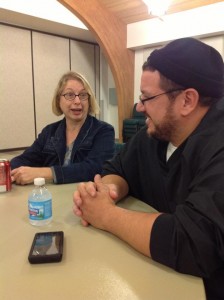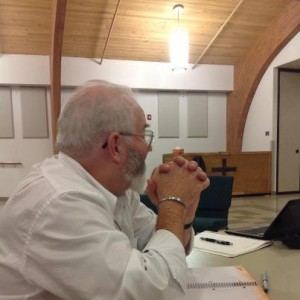 For me, one of the best things that happened at the Disability Leadership Gathering that I attended this week at Sonrise Retreat Center in Anderson, Indiana, was that I was griped with the amount of passion shared by the leaders who have a genuine concern for the Church. They have a consuming desire to help the Church to understand the great gifts that the intellectually disabled community brings to local congregations.
For me, one of the best things that happened at the Disability Leadership Gathering that I attended this week at Sonrise Retreat Center in Anderson, Indiana, was that I was griped with the amount of passion shared by the leaders who have a genuine concern for the Church. They have a consuming desire to help the Church to understand the great gifts that the intellectually disabled community brings to local congregations.
In honesty, this is not my passion nor the prevailing passion of Special Gathering. Our one goal is to evangelize and disciple people who are mentally challenged. All our efforts and passion revolve around that concern. I am deeply grateful, however, for the many ministries around the US who feel an equal passion for educating the church regarding the needs of this important culture.
 However, Special Gathering does feel the need to communicate with the local churches or with congregations. The divide–as I see it–comes with the people with whom we communicate. Most of the disability leadership attending the gathering in Indiana desire to communicate with the people in the congregations as individuals. On the other hand, The Special Gathering purposely does not communicate with the individual members. We speak at local churches when we are invited. We bring our choir to sing. But we don’t solicit finances from the individual congregants. We solicit funding from the missions committees or pastors. We desire to become a part of a church’s budget.
However, Special Gathering does feel the need to communicate with the local churches or with congregations. The divide–as I see it–comes with the people with whom we communicate. Most of the disability leadership attending the gathering in Indiana desire to communicate with the people in the congregations as individuals. On the other hand, The Special Gathering purposely does not communicate with the individual members. We speak at local churches when we are invited. We bring our choir to sing. But we don’t solicit finances from the individual congregants. We solicit funding from the missions committees or pastors. We desire to become a part of a church’s budget.
Over the years, this has proven to be a consistently stable way to raise funds. It may not, however, be the most financially beneficial way to raise a ministry budget. In addition, there was a great passion for the Church communicated by these men and women who have a more direct contact with individual members that was extremely appealing.
Perhaps this is a discussion that needs to be held by pastors and ministry leaders. Which method benefits the local congregations most in raising a budget for para-church ministries? Does it seem best to by-pass the church’s budgeting process and make appeals to individuals? Or does it make sense to seek out pastors and missions committees for funding? Or should a parachurch ministry–such as a ministry to people with intellectual disabilities–seek to do both?
